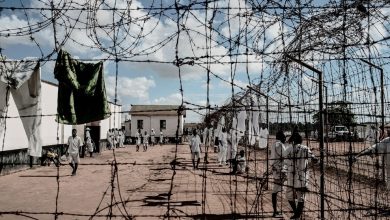Malawi cannot be Kenya unless…
A few days after a court ruling in the east African country of Kenya overturned an election result already in the back, the rest of Africa is mulling over a similar event happening in their countries to rescue them from the bondage that is election rigging that goes unchallenged.
Malawi, just three years from a contested election is not left out over imagining what might have been on the eventful night of May 30 2014.
In Kenya, votes are counted and tallied electronically. A series of official forms not transmitted in the correct order, no official stamps and with minor errors was enough for the Supreme Court in that country to smell something fishy and overturn the election results.
In contrast, it had to take a whole three years for the courts in Malawi to nullify the results of the parliamentary election in Lilongwe City South East constituency over similar irregularities, three years in which the constituents were being represented in Parliament by an illegitimate Member of Parliament.
But even after the ruling, it has taken another five months for the Malawi Electoral Commission (MEC) to hold the re-run, or by-election, since the drafters of the electoral laws did not anticipate that a re-run would need to be conducted one day and put in place procedures to enable this.
This is what Malawi is dealing with right now and to imagine that we will have a Kenyan scenario on our hands in 2019 is laughable.
There are several pieces of legislation which the Law Commission proposed and could be the game-changer in how elections are run in this country in 2019 which the Ministry of Justice is probably sanitising as we debate the Kenyan election so they are ‘friendly’ to the incumbent.
It is argued that the Malawi Constitution is a perfect piece of document. It is so perfect that any leader who comes into power can decide to just ignore its tenets and Malawians are none the wiser.
The electoral laws that this country had in 2014 and are likely to be used at the rate the reforms are being implemented had many challenges which did not allow for the Kenyan scenario to happen, even if Judge Kenyatta Nyirenda had wanted it to go that way.
That there were irregularities, for lack of a better word, goes without mention and the court duly noted this, the Lilongwe City South East crystallised this fact even more.
Not to excuse the local Kenyatta but he was working within what the law had prescribed and his duty was simply to interpret it. He did rightly rule that the votes be recounted within eight days of the election which unfortunately was ending a few minutes after he delivered his ruling.
The eight days was not just grasped out of thin air, it was the period in which the electoral law could allow for a recount to happen.
As such it is not necessary for our judges to go north east to learn to be independent and make decisions without first checking if their pockets have adequately padded.
The judge that the opposition likes to hate for that quarter to midnight decision that handed President Peter Mutharika the election is not at fault, the system and the deficiency in the laws is.
In the run-up to the May, 2019 election, that is what those who are loudly admiring the events in Kenya should be fighting for; tabling of those pieces of draft bills proposed by the Law Commission should be a start.
The opposition should not be comfortable with the status quo just because the shambolic way elections are conducted in this country might one day benefit them.
The likes of electoral stakeholders like Malawi Electoral Support Network can only do so much, the donors can only lobby to an extent and short of issuing thinly veiled threats about the consequences of not legitimising these electoral reforms, Malawians should forget ever experiencing a changed electoral landscape come 2019.


